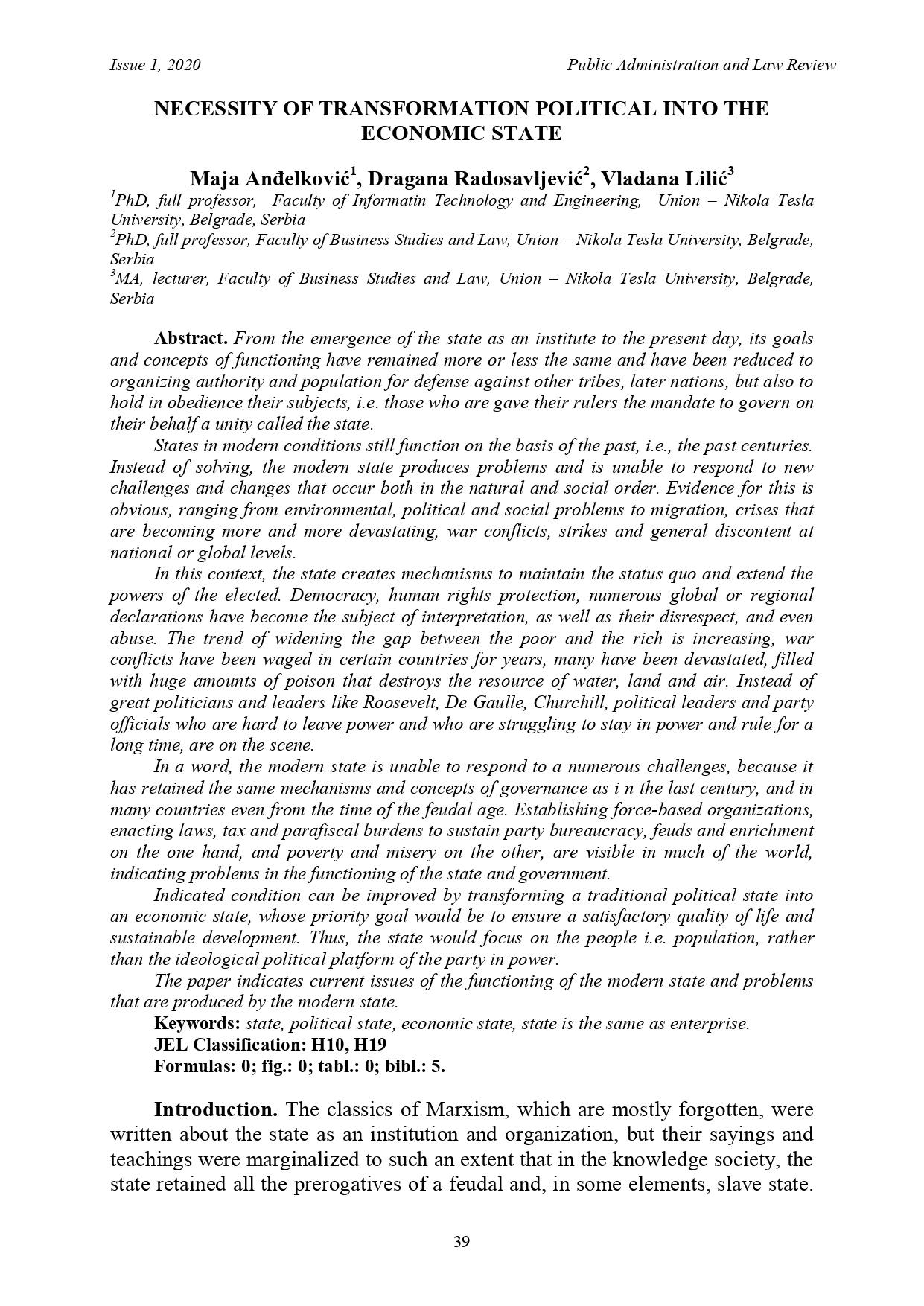NECESSITY OF TRANSFORMATION POLITICAL INTO THE ECONOMIC STATE
DOI:
https://doi.org/10.36690/2674-5216-2020-1-39-45Keywords:
state, political state, economic state, state is the same as enterpriseAbstract
From the emergence of the state as an institute to the present day, its goals and concepts of functioning have remained more or less the same and have been reduced to organizing authority and population for defense against other tribes, later nations, but also to hold in obedience their subjects, i.e. those who are gave their rulers the mandate to govern on their behalf a unity called the state.
States in modern conditions still function on the basis of the past, i.e., the past centuries. Instead of solving, the modern state produces problems and is unable to respond to new challenges and changes that occur both in the natural and social order. Evidence for this is obvious, ranging from environmental, political and social problems to migration, crises that are becoming more and more devastating, war conflicts, strikes and general discontent at national or global levels.
In this context, the state creates mechanisms to maintain the status quo and extend the powers of the elected. Democracy, human rights protection, numerous global or regional declarations have become the subject of interpretation, as well as their disrespect, and even abuse. The trend of widening the gap between the poor and the rich is increasing, war conflicts have been waged in certain countries for years, many have been devastated, filled with huge amounts of poison that destroys the resource of water, land and air. Instead of great politicians and leaders like Roosevelt, De Gaulle, Churchill, political leaders and party officials who are hard to leave power and who are struggling to stay in power and rule for a long time, are on the scene.
In a word, the modern state is unable to respond to a numerous challenges, because it has retained the same mechanisms and concepts of governance as i n the last century, and in many countries even from the time of the feudal age. Establishing force-based organizations, enacting laws, tax and parafiscal burdens to sustain party bureaucracy, feuds and enrichment on the one hand, and poverty and misery on the other, are visible in much of the world, indicating problems in the functioning of the state and government.
Indicated condition can be improved by transforming a traditional political state into an economic state, whose priority goal would be to ensure a satisfactory quality of life and sustainable development. Thus, the state would focus on the people i.e. population, rather than the ideological political platform of the party in power.
The paper indicates current issues of the functioning of the modern state and problems that are produced by the modern state.
Downloads
References
Braun, L., (1979). Svijet bez granica, Globus, Zagreb.
Beri, N., (2007). Uvod u modernu političku teoriju, Službeni glasnik, Beograd.
Blanchard, K., (2007). Rukovođenje na višoj razini, Mate, Zagreb.
Engels, F.,(1979). Poreklo porodice, privatne svojine i države, BIGZ, Beograd.
Lenjin, V., (1918). Država i revolucija, BIGZ, Beograd.

Downloads
Published
How to Cite
Issue
Section
License
Copyright (c) 2020 Scientific Center of Innovative Researches OÜ

This work is licensed under a Creative Commons Attribution 4.0 International License.





